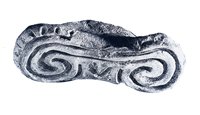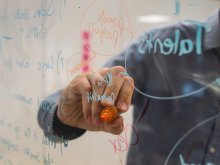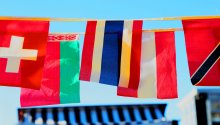Dottorato
Programmato
3 years
Varese
inglese
DIPARTIMENTO DI ECONOMIA
Descrizione del corso
Una parte importante dell’analisi economica è dedicata allo studio dei processi decisionali. Ogni giorno, consumatori e produttori, lavoratori e imprese, banche e manager, famiglie e policy maker prendono decisioni che hanno conseguenze economiche rilevanti. Gli economisti si impegnano a comprendere, prevedere e, talvolta, orientare i meccanismi che guidano queste scelte.
L’analisi delle decisioni umane si avvale di metodi e modelli diversi, a seconda dell’ambito di ricerca. La teoria classica delle decisioni si fonda su modelli matematici, mentre la ricerca più recente in ambito comportamentale utilizza spesso approcci sperimentali. Gli strumenti econometrici consentono di studiare i fattori che influenzano scelte specifiche, come quelle relative al lavoro, ai trasporti, alla salute o alla beneficenza. I metodi computazionali, invece, permettono di simulare le interazioni tra agenti economici e di analizzare gli effetti delle loro decisioni.
Il Dottorato in Methods and Models for Economic Decisions prepara giovani ricercatori a approfondire le loro conoscenze all’interno di questa varietà di ambiti teorici e applicati. Il programma prevede, l’acquisizione di 180 crediti formativi nell’arco dei tre anni, indicativamente 60 per anno. Di questi, almeno 19 sono nel primo anno acquisiti mediante la frequenza di corsi istituzionali ad hoc per dottorandi.
Tutte le attività sono svolte interamente in lingua inglese e da docenti afferenti al Dipartimento di Economia dell’Università degli Studi dell’Insubria, da docenti afferenti ad altri Dipartimenti ed Università italiane e da visiting professors afferenti a Università e centri di ricerca esteri. Tutte le informazioni riportate in questa pagina sono disponibili anche nella corrispondente pagina istituzionale in lingua inglese, che costituisce parte integrante della documentazione ufficiale del programma.
Gli studenti sono seguiti e affiancati durante tutto il percorso. Nel primo anno hanno l’opportunità di individuare un’area di ricerca per la loro tesi e di selezionare i loro supervisori, sia tra i membri del collegio dei docenti che tra accademici o professionisti esterni. I successivi due anni sono interamente dedicati all’attività di ricerca. Gli studenti si dedicano ai loro progetti e sono tenuti a partecipare a seminari e ad altre attività formative organizzative tenute da docenti, sia interni che esterni, di rilevanza internazionale.
Il programma promuove la mobilità internazionale, incoraggiando gli studenti a trascorrere parte del percorso di dottorato all’estero e supportandoli nell’acquisizione di esperienze globali. L’obiettivo è formare ricercatori indipendenti, capaci di intraprendere una carriera accademica in università di prestigio o di ricoprire ruoli di ricerca in imprese private e organizzazioni internazionali.
Il Dottorato offre stage e visite di ricerca presso istituzioni internazionali di prestigio. Tra le principali opportunità: Pan-European Seal Programme (EUIPO ed EPO) per tirocini retribuiti; Collaborazioni e visite presso il Competence Centre on Microeconomic Evaluation (CC-ME) del Joint Research Centre (JRC) della Commissione Europea, nell’ambito della rete NetCIEx; Programmi di tirocinio presso organizzazioni globali come IMF, World Bank e OECD. Per dettagli e candidature, si rinvia alle pagine dedicate.
Un’ulteriore occasione di arricchimento è rappresentata dalle diverse iniziative offerte dal Dipartimento di Economia, che è stato selezionato tra i 180 Dipartimenti di eccellenza selezionati dal Ministero dell’Università e della Ricerca per il periodo 2023-2027, occupando l’ottavo posto in Italia nell’area delle Scienze economiche.
Iscriversi
Il programma offre 6 posti, di cui 5 con borsa di studio e 1 senza borsa.
L’iscrizione è possibile dopo un processo di selezione basato sulla valutazione dei titoli e su un colloquio orale.
Per essere ammessi ad un corso di dottorato di ricerca occorre essere in possesso della laurea magistrale/specialistica/ciclo unico/vecchio ordinamento ovvero di altro titolo di studio conseguito all'estero e riconosciuto idoneo.
Sono ammessi alla selezione anche coloro che non hanno ancora conseguito il titolo; l’immatricolazione può essere perfezionata solo per coloro che lo conseguono entro il 31 ottobre.
La selezione avviene tramite la valutazione dei titoli e una prova orale:
- Punteggio Titoli: 60 punti massimo
I titoli dei candidati saranno valutati in base all’attinenza alle tematiche del Dottorato secondo il dettaglio riportato nel Bando. Soltanto i candidati che otterranno almeno 40 punti nella valutazione dei titoli saranno ammessi alla prova orale.
- Punteggio prova orale: 60 punti massimo
La prova orale dovrà essere sostenuta almeno in parte in lingua inglese. I candidati ammessi fuori sede o residenti all’estero potranno richiedere lo svolgimento del colloquio da remoto, tramite la piattaforma Microsoft Teams, presentando alla Coordinatrice e alla commissione esaminatrice una motivazione adeguata a supporto della richiesta. La prova orale si intende superata con un punteggio di almeno 40 punti.
Informazioni più dettagliate, sono riportate nel Bando.
Il dottore di ricerca in Methods and Models for Economic Decisions rappresenta un professionista di alto profilo, con opportunità occupazionali nell'ambito delle professioni intellettuali e scientifiche avanzate. I laureati possono trovare sbocchi nel settore universitario, sia nel sistema italiano che in quello di altri paesi europei, oltre a lavorare in istituti di ricerca pubblici e privati e organismi internazionali, sia in Italia che all'estero. Al di fuori del mondo accademico, le competenze acquisite consentono ai dottori di ricerca di accedere a posizioni dirigenziali in aziende private e in enti internazionali. Le esperienze internazionali svolte durante il percorso di dottorato, in particolare nel secondo e terzo anno di studio, arricchiscono ulteriormente le possibilità occupazionali. La tipologia contrattuale a uno e tre anni dalla laurea è generalmente diversificata, con una prevalenza di assegni di ricerca.
Il Dottorato in Methods and Models for Economic Decisions partecipa al programma interuniversitario di dottorato in Sustainable Development and Climate Change (PhD SDC), coordinato da IUSS – Pavia (Curriculum Beta: HUMAN SOCIETY: SOCIO-ECONOMIC IMPACTS, INSTITUTIONS AND THEORIES).
Referente del Collegio Docenti: Elena Maggi
Frequentare
Il Dottorato si propone di formare ricercatori che abbiano padronanza, sia da un punto di vista teorico che applicato, dei metodi impiegati nell’analisi delle decisioni economiche, attraverso un approccio multidisciplinare.
In accordo con l’organizzazione delle attività formative proposte dalla Scuola di Dottorato, a partire dall’anno accademico 2025-2026 (ciclo 41) il percorso di studio è definito assegnando crediti formativi (CFU) alle attività didattiche e di ricerca previste. L’articolazione dell’offerta formativa comprende:
• Attività didattiche
• Attività di formazione di competenze trasversali
• Attività di ricerca
• Attività di perfezionamento della lingua inglese
• Eventuali periodi di studio o ricerca all’estero
per un totale di 180 CFU nel triennio. Ogni CFU corrisponde a 8 ore di lezione.
La proposta formativa viene approvata annualmente dal Collegio di Dottorato e il calendario delle attività viene aggiornato periodicamente.
Nei documenti seguenti sono disponibili le informazioni essenziali per tutti i cicli di dottorato: informazioni generali sulla struttura del dottorato, struttura del corso e calendario delle attività.
Presentazione generale del corso di dottorato
Pianificazione annuale delle attività formative
Calendario delle attività_25_26
Le attività didattiche vengono erogate in presenza o in modalità mista e possono prevedere attività pratiche (ad esempio laboratori computazionali). La frequenza in presenza è richiesta per tutti i dottorandi, salvo diverse indicazioni del docente. In caso di assenza giustificata, è necessario contattare il docente e il coordinatore.
Studiare
Le attività didattiche si concentrano prevalentemente nel 1° anno, durante il quale viene fornita una formazione economica rigorosa, insieme a una solida base solida di conoscenze quantitative.
| Course Title | Hours | CFU | Professor | SSD | Area | Final Exam |
|---|---|---|---|---|---|---|
| FIRST PERIOD (November - December) | ||||||
| Advanced Econometrics for Decision Making | 12 | 1.5 | Seri | ECON-05 | Economics Econometric techniques for economic decisions | ✓ |
| Applied econometrics: causality and policy evaluation | 20 | 2.5 | Castelnovo, Porro, Sonedda, Vezzulli | ECON-05 | Economics: Econometric techniques for economic decisions | ✓ |
| Transport decision making and sustainability | 12 | 1.5 | Maggi | ECON-04 | Economics: Applied Microeconomics | ✓ |
| Introduction to Macro Agent Based models | 12 | 1.5 | Caverzasi | ECON-01 | Economics: Macroeconomics | ✓ |
| Introduction to MATLAB | 8 | 1 | Moretto | STAT-04 | Computational methods for economic decisions | ✓ |
| STATA Laboratory for financial and economic analyses | 10 | 1.25 | Tanda | ECON/09-B | Computational methods for economic decisions | ✓ |
| Advanced Mathematical Methods for Economic Decisions | 10 | 1.25 | Tarsia | STAT-04 | Mathematics/Statistics Quantitative tools for economic decisions | ✓ |
| SECOND PERIOD (February - May) | ||||||
| Decision making in historical-economic perspective | 12 | 1.5 | Brambilla | ECON-01 | Economics: Economic History | ✓ |
| The economics of altruistic decisions and charitable giving | 10 | 1.25 | Galmarini | ECON-01 | Economics: Microeconomics | ✓ |
| Applied econometrics: Health Economics | 18 | 2.25 | Robone, Orso, Garcia-Prado | ECON-03 | Economics: Applied Microeconomics | ✓ |
| Networks: Theory and Applications | 12 | 1.5 | Vanni | STAT-04 | Mathematics/Statistics Quantitative tools for economic decisions | ✓ |
| Optimization with applications to finance and economics | 16 | 2 | Rocca | STAT-04 | Mathematics/Statistics Quantitative tools for economic decisions | ✓ |
| SUPPLEMENTARY SEMINARS AND LECTURES by external visiting scholars | ||||||
| Economic growth theory | 8 | 1 | Marsiglio | ECON-01 | Economics: Macroeconomics | ✓ (joint with La Torre's course) |
| Optimal control theory | 8 | 1 | La Torre | STAT-04 | Mathematics/Statistics Complementary tools for economic decisions | ✓ |
| Option theory and its use in finance | 6 | 0.75 | Sala | STAT-04 | Mathematics/Statistics Complementary tools for economic decisions | ✘ |
| Dynamic Structural Estimation | 4 | 0.5 | Mantovan | ECON-05 | Economics: Econometric techniques for economic decisions | ✘ |
| Applied econometrics: causality and policy evaluation - II part | 8 | 1 | Montorsi | ECON-05 | Economics: Econometric techniques for economic decisions | ✓ (joint with La Castelnovo et al. course) |
| TBA | 4 | 0.5 | Mendonça | ✘ | ||
|
Course |
Year |
Hours |
Faculty |
Description |
|
Safety in the laboratory |
1 |
14 |
Ref. Sacchi |
Legal aspects. Working with videoterminals. Working with chemicals. Working with lasers and radioactive sources. Biohazard. |
|
Artificial intelligence |
Any |
8 |
Ref. Fasano |
Foundations of AI. The AI act. Applications (Biology, Surgery, Medicine, Economics, Humanities, Astrophysics, Materials science) |
|
Becoming a researcher – The publication process |
Any |
8 |
Ref. Vezzulli |
The aim of the course is to analyse the process of publishing, from identifying a target journal, drafting the paper, the submission process, handling reviews and revisions. The course will also cover aspects related to the ethics of publishing (e.g., plagiarism, co-authoring) and provide a concrete example of a journal article from firm submission to handling the reviewers’ letters to acceptance. |
|
Personal branding |
Any |
12 |
TLC |
At the end of the course, the participant will be able to effectively manage their presence on social media by creating high-quality content and will know how to communicate in an official capacity to best promote themselves on their personal and professional channels. |
|
Public speaking |
Any |
8 |
TLC |
The course introduces important elements of successful presentations including effective listening, presentation organization, and logical structure; informative and persuasive speech; use of visual aids, research, and evidence; ethical considerations; and techniques for building confidence in public speaking. Objectives: to increase confidence and poise when speaking to audiences or groups; to expand student’s abilities with computer mediated communication in order to better prepare them for future presentations online; to enrich students’ ability to master all components that make a speech successful: understanding timing, figuring out how much practice is needed, ensuring deliverables are clear, and being able to meet deadlines. |
|
Project management |
Any |
8 |
TLC |
How to start, define and organize a project; how to develop a project plan, including scoping, sequencing tasks, and determining the critical path; how to assess, prioritize and manage project risk; how to execute projects and use the earned value approach to monitor and control progress |
Oltre alle attività curriculari e trasversali, gli studenti hanno la possibilità di partecipare ad attività formative a scelta libera in altri corsi di dottorato, anche in altre Università. È previsto un minimo di 1 CFU da dedicare a queste attività.
Il Corso organizza una serie di seminari a cadenza mensile, pensati appositamente per i dottorandi. In questo contesto possono presentare esclusivamente dottorandi o ricercatori junior esterni all’Ateneo, affiliati a università italiane o internazionali. È inoltre previsto un workshop di una giornata su tematiche avanzate di ricerca e metodologie innovative di ambito economico, con la partecipazione di relatori di rilievo internazionale.
L'Ateneo propone corsi opzionali di lingua inglese mediante una piattaforma software multimediale (MacMillan English Campus - MEC) e un corso di lingua inglese, in preparazione all’acquisizione della certificazione di livello B2.
Al termine del percorso di Dottorato è richiesta la certificazione B2 di lingua inglese, obbligatoria per l’acquisizione del titolo di Dottore di Ricerca.
Tutte le informazioni sono disponibili alla pagina https://www.uninsubria.eu/course-catalogue/course-list/phd-doctoral-programs/information-enrolled-students/english-language
Il programma incoraggia fortemente i dottorandi a trascorrere parte del percorso all’estero, offrendo supporto per acquisire esperienza internazionale. L’obiettivo principale è formare ricercatori indipendenti, in grado di intraprendere una carriera accademica in università di prestigio o ricoprire ruoli di ricerca in imprese private e organizzazioni internazionali.
Negli ultimi anni, studenti del secondo e terzo anno hanno svolto periodi di ricerca presso istituzioni quali: Duke University (USA), Stony Brook University - New York (USA), University of Nottingham (UK), University of Kent (UK), University of Jena (Germania), University of Bordeaux (Francia), University of Lille (Francia), Universitat Jaume I - Castellón (Spagna), University of Granada (Spagna), Technical University of Ostrava (Repubblica Ceca), IAAEU (University of Trier)
Conseguire il titolo
Dal primo al secondo anno
Per accedere al secondo anno, gli studenti devono aver completato tutti gli esami entro il 15 settembre del primo anno. Entro la stessa scadenza del 15 settembre, ogni studente deve scegliere un supervisore tra i membri del Collegio dei Docenti. È inoltre necessario indicare un co-supervisore, che può essere un membro del Collegio docenti o un membro esterno accademico o professionista.
Dal secondo al terzo anno
Per essere ammessi al terzo anno, entro il 15 settembre del secondo anno gli studenti devono presentare al Collegio Docenti almeno un working paper originale, contenente risultati preliminari e/o una review della letteratura. Il working paper deve essere approvato dai docenti supervisori.
Entro il 15 settembre ciascun dottorando è tenuto a presentare al Collegio dei Docenti una relazione annuale che documenti in modo dettagliato le attività formative e di ricerca svolte durante l’anno accademico precedente, nonché lo stato di avanzamento del proprio progetto di ricerca.
Alla fine del terzo anno, il Collegio dei Docenti valuta l’intero percorso formativo del dottorando, inclusa la qualità e l’avanzamento della tesi di dottorato, per l’ammissione all’esame finale.
La tesi rappresenta il risultato principale del percorso di ricerca e deve dimostrare capacità di analisi originale e contributo scientifico significativo.
È strutturata in almeno tre capitoli, ciascuno sviluppato con l’obiettivo di rispettare gli standard qualitativi richiesti per la pubblicazione su riviste scientifiche internazionali di riconosciuto prestigio che prevedono peer review. La tesi può anche essere strutturata come una raccolta di articoli, collegati da un’introduzione e da una sintetica rassegna della letteratura.
Al dottorando è fortemente raccomandato che almeno un capitolo sia a firma singola.
Servizi per gli studenti
Organi del corso e rappresentanti
Il Collegio dei Docenti del Dottorato è composto da professori dell’Università degli Studi dell’Insubria, nonché da docenti provenienti da altre università italiane e internazionali.
Docenti dell’Università degli Studi dell’Insubria
- Stefano Amelio, Professore Associato di Economia Aziendale
- Marianna Astore, Ricercatrice Tenure Track di Storia Economica
- Andrea Bellucci, Professore Associato di Finanza Aziendale
- Carlo Brambilla, Professore Ordinario di Storia Economica
- Chiara Casoli, Ricercatrice Tenure Track Econometria
- Paolo Castelnovo, Professore Associato di Economia Applicata
- Eugenio Caverzasi, Professore Associato di Economia Politica
- Umberto Galmarini, Professore Ordinario di Scienza delle Finanze
- Astrid Gamba, Professoressa Associata di Economia Politica
- Patrizia Gazzola, Professoressa Ordinaria di Economia Aziendale
- Asmerilda Hitaj, Professoressa Associata di Metodi matematici dell'economia e delle scienze attuariali e finanziarie
- Paolo Leonetti, Professore Associato di Metodi matematici dell'economia e delle scienze attuariali e finanziarie
- Elena Maggi, Professoressa Ordinaria di Economia Applicata
- Elisa Mastrogiacomo, Professoressa Ordinaria di Metodi matematici dell'economia e delle scienze attuariali e finanziarie
- Ivan Moscati, Professore Ordinario di Economia Politica
- Regine Oexl, Professoressa Associata di Economia Politica
- Cristina Elisa Orso, Professoressa Associata di Scienza delle finanze
- Paolo Pagnottoni, Ricercatore Tenure Track di Statistica
- Alessia Pisoni, Professoressa Associata di Economia e gestione delle imprese
- Giuseppe Porro, Professore Ordinario di Politica Economica
- Andrea Riganti, Ricercatore Tenure Track di Scienza delle Finanze
- Matteo Rocca, Professore Ordinario di Metodi matematici dell'economia e delle scienze attuariali e finanziarie
- Raffaello Seri, Professore Ordinario di Econometria
- Daniela Sonedda, Professoressa Associata di Economia Politica
- Alessandra Tanda, Professoressa Associata di Finanza Aziendale
- Fabio Vanni, Professore Associato di Metodi matematici dell'economia e delle scienze attuariali e finanziarie
- Andrea Vezzulli, Professore Ordinario di Economia Applicata
Docenti di altre università italiane e internazionali
- Alessandro Barbiero, Professore Associato di Statistica, Università di Milano
- Cinzia Colapinto, Professoressa Associata di Management, Cà Foscari Università di Venezia
- Giovanni P. Crespi, Professore Ordinario di Metodi matematici dell'economia e delle scienze attuariali e finanziarie, LIUC – Università Carlo Cattaneo
- Francesco Figari, Professore Ordinario di Scienza delle Finanze, Università del Piemonte Orientale
- Chiara Gigliarano, Professore Ordinario di of Statistica, LIUC – Università Carlo Cattaneo
- Davide La Torre, HDR, Associate Dean and Full Professor of Artificial Intelligence and Applied Mathematics, SKEMA Business School, Université Cote d’Azur, Francia
- Jianyi Lin, Professore Associato di Informatica, Università Cattolica del Sacro Cuore
- Francesco Lissoni, Professor of Economics, University of Bordeaux, Francia
- Danilo Liuzzi, Professore Associato di Metodi matematici dell'economia e delle scienze attuariali e finanziarie, Università di Milano
- Simone Marsiglio, Professore Associato di Economia Politica, Università di Pisa
- Silvia Massini, Professor of Economics and Technology Management, University of Manchester, UK
- Enrico Moretto, Ricercatore di Metodi matematici dell'economia e delle scienze attuariali e finanziarie, Università di Milano Bicocca
- Silvana Robone, Professoressa Associata di Economia Politica, Università del Piemonte Orientale
- Anna Cecilia Rosso, Professoressa Associata of Economia Politica, Università di Milano
- Davide Secchi, Professore Associato di Organizational Cognition, University of Southern Denmark, Denmark
- Valerio Sterzi, Professor of Economics, Università di Bordeaux, Francia
La Commissione AiQUA PhD MMED ha il compito di sovraintendere al controllo della qualità di tutte le attività didattiche e di ricerca del Corso di Dottorato. Si interfaccia con il Collegio dei Docenti, con la Scuola di Dottorato e con il Consiglio di Dipartimento.
È composta dal Coordinatore, da 4 membri del Collegio dei Docenti, un rappresentante dei dottorandi e un componente della Segreteria Didattica. La composizione della Commissione viene proposta dal Collegio e nominata dal Consiglio di Dipartimento.
Scopri di più:
Il Comitato Consultivo svolge un ruolo strategico nel garantire la qualità del programma di dottorato, assicurando che la struttura, i contenuti e le attività formative rispettino elevati standard accademici e le migliori pratiche. Inoltre, contribuisce a mantenere il programma allineato alle tendenze della ricerca, alle esigenze della società e alle richieste del mercato del lavoro, affinché i dottorandi sviluppino competenze utili sia in ambito accademico sia professionale.
Il Comitato Consultivo è costituito dal Coordinatore e da almeno 5 membri con incarico triennale rinnovabile, identificati tra i rappresentanti delle Parti Interessate (PI), e nominati su indicazione del Coordinatore, dal Collegio di Dottorato. La composizione del Comitato Consultivo può essere modificata o aggiornata, affinché rifletta la rappresentanza delle PI.
La composizione del Comitato Consultivo è la seguente:
- Centorrino Samuele, Computational Economics Expert at the International Monetary Fund
- Mendonça Sandro, ISCTE Business School, Stream Leader for Technology Intelligence at the Observatory on Patents and Technology of the European Patent Office
- Radi Davide, Professore Ordinario, Università Cattolica Sacro del Cuore
- Tubaro Paola, research professor (Directrice de Recherche) at the Centre National de la Recherche Scientifique, France
- Vannuccini Simone, Junior Professor in Economy of AI and Innovation, Université Cote d’Azur, France
- Vinogradov Dmitri, Professor of Finance, University of Glasgow
39° ciclo: Luca Bargna, Ardit Koka, Sara Savini
38° ciclo: Giulia Cristaldi
Per informazioni
Dipartimento di Economia – DiECO
Università degli Studi dell'Insubria
Via Monte Generoso 71 - 21100 Varese – Italy
Coordinator: Prof.ssa Elisa Mastrogiacomo | [email protected]
Sito web dedicato ai dottorandi con ulteriori dettagli e approfondimenti sul programma di dottorato






